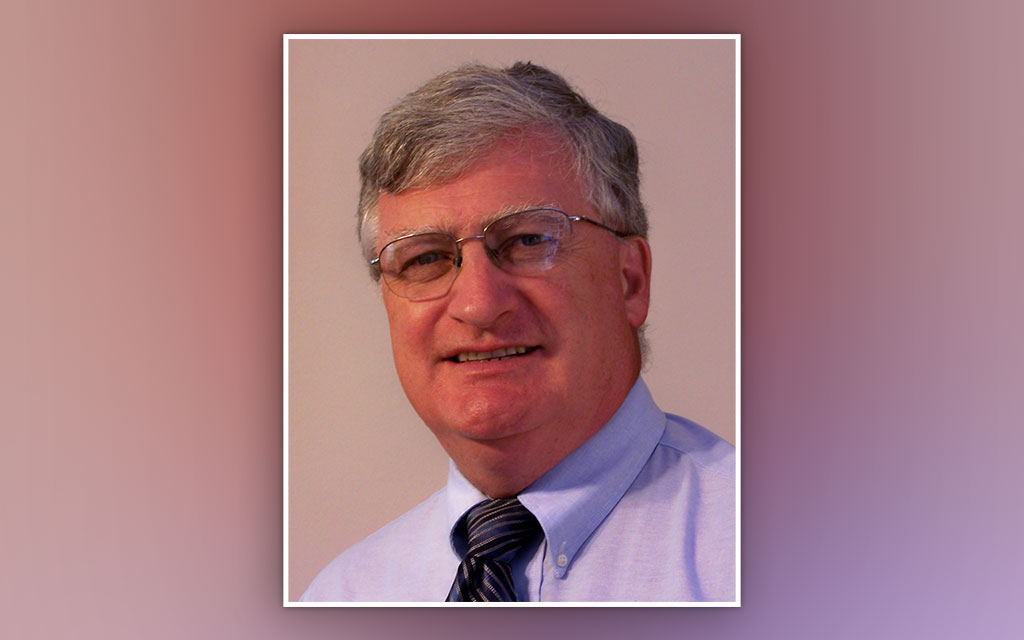Terence J. Kleven, the Jacob and Gela Schnucker Sessler Professor of Philosophy and Religious Studies at Central College, has been awarded a Fulbright U.S. Scholar Program grant to conduct research in Arabic political philosophy at the University of Jordan in Amman, Jordan, from Sept. 1, 2021, to June 30, 2022.
Kleven will continue his work to complete a critical Arabic edition and an English translation of several treatises of Alfarabi on scientific method. Alfarabi (d. A.D. 950) is a comprehensive thinker, a philosopher, jurist, scientist, mathematician, musician and Muslim theologian, who widely influenced both Eastern and Western thought. He nearly single-handedly revived the classical Greek philosophic rationalism of Plato, Aristotle and Galen. Only in the past 50 years has more precise scholarship on Alfarabi’s treatises shown the misunderstandings of Greek and Arabic philosophy perpetuated during the Enlightenment and in the more recent scientific accounts formulated by the schools of positivism, empiricism or postmodernism.
The consequence of these recent accounts of science has been the construction of a more limited and fragile science than is found in classical philosophic science. Alfarabi’s work shows how classical Greek political philosophy provides an alternative to the crisis that exists in recent skeptical accounts of political thought, ethics and faith. His account of the relation between reason and faith is exemplary in its respect for and promulgation of both science and religious faith.
“The purpose of this research is to enrich our understanding of modern political philosophy through a study of classical Greek and Arabic political philosophy, especially in how it relates science to political thought and to theology today,” Kleven says. “This project entails the recovery of the full range and integration of what today we call the liberal arts in order to foster an intellectual revival of our educational curricula.”
Kleven has received more than two dozen international, national, and regional awards, fellowships and grants. This Fulbright grant is the second Kleven has received. His first Fulbright was tenured at Louis Pouzet Center for Classical and Medieval Studies at the Oriental Library of The University of St. Joseph, Beirut, Lebanon. In 2001, he also was awarded the Iowa Professor of the Year Award from the Carnegie Foundation for the Advancement of Teaching. He has also received a fellowship from the National Endowment for the Humanities for research in the American Research Center in Cairo.
As a Fulbright Scholar, Kleven will share knowledge and foster meaningful connections across communities in the United States and Jordan. Fulbrighters engage in cutting-edge research and expand their professional networks, often continuing research collaborations started abroad and laying the groundwork for forging future partnerships between institutions. Upon returning to their institutions, labs and classrooms, in the United States, they share their stories and often become active supporters of international exchange, inviting foreign scholars to campus and encouraging colleagues and students to go abroad. As Fulbright Scholar alumni, their careers are enriched by joining a network of thousands of esteemed scholars, many of whom are leaders in their fields. Fulbright alumni include 60 Nobel Prize laureates, 88 Pulitzer Prize recipients, and 39 who have served as a head of state or government.
The Fulbright Program is the U.S. government’s flagship international educational exchange program and is supported by the people of the United States and partner countries around the world. The Bureau of Educational and Cultural Affairs is pleased to announce that 2021 marks the 75th anniversary of the program. Celebrations throughout the year will highlight the impressive accomplishments and legacy of the program and its alumni over its first 75 years, both in the United States and around the world.
Since 1946, the program has provided more than 400,000 participants from over 160 countries the opportunity to study, teach and conduct research, exchange ideas, and contribute to finding solutions to shared international concerns. The primary source of funding for the program is an annual appropriation by the U.S. Congress to the U.S. Department of State’s Bureau of Educational and Cultural Affairs. Participating governments and host institutions, corporations and foundations in foreign countries and in the United States also provide direct and indirect support. The program offers approximately 470 teaching, research or combination teaching/research awards in more than 125 countries.


